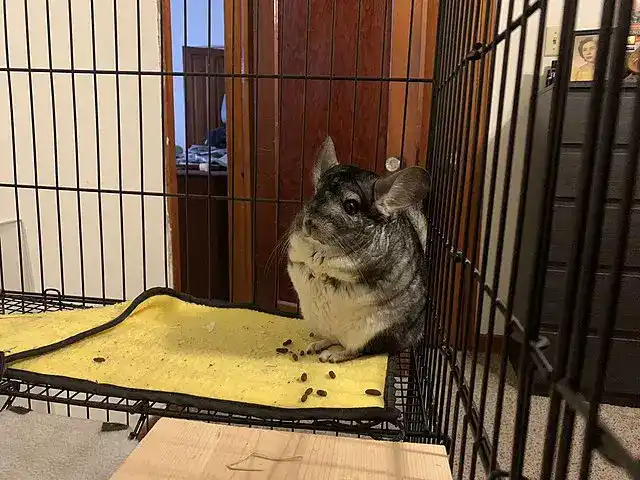Chinchillas are adorable, fluffy creatures that have gained popularity as pets over the years. If you’re considering bringing a chinchilla into your life, one question you might have is, “Do chinchillas bite?” In this comprehensive guide, we’ll delve into the world of these charming rodents to understand their behavior and provide valuable insights on how to prevent chinchilla bites.

Understanding Chinchilla Behavior
Before we address the biting behavior of chinchillas, it’s essential to understand their natural instincts and tendencies. Chinchillas are known for their social nature and high energy levels. They are crepuscular animals, which means they are most active during dawn and dusk. Here are some key behavioral traits of chinchillas:
1. Curiosity
Chinchillas are naturally curious animals. They love to explore their surroundings, sniff new objects, and investigate anything unfamiliar to them. This curiosity can sometimes lead to nibbling or gentle biting to examine objects.
2. Nibbling
Chinchillas communicate and interact with the world through their mouths. Nibbling is a common behavior among chinchillas, especially when they are exploring or playing. This nibbling is usually gentle and not meant to cause harm.
3. Chewing
Chinchillas have continuously growing teeth, and they need to chew on various objects to keep their teeth from overgrowing. Providing them with appropriate chew toys and objects is crucial to their dental health.
Do Chinchillas Bite Aggressively?
While chinchillas are generally not aggressive animals, they may bite in certain situations. It’s important to note that aggressive biting is not common among chinchillas, and it usually occurs as a last resort when they feel threatened or frightened. Here are some situations where chinchillas may bite more aggressively:
1. Handling Stress
Chinchillas may bite when they are stressed or uncomfortable with handling. To prevent this, it’s essential to handle them gently and gradually get them accustomed to human interaction.
2. Territorial Behavior
Chinchillas can be territorial, especially when it comes to their cages or living spaces. If you invade their territory abruptly, they might bite defensively. Always approach their cages calmly and avoid sudden movements.
3. Illness or Pain
When chinchillas are unwell or in pain, they may bite as a way to express their discomfort. Regular health check-ups and prompt medical attention can help prevent such situations.
How to Prevent Chinchilla Bites
Preventing chinchilla bites is essential to ensure a positive and safe interaction with these furry companions. Here are some tips to help you minimize the risk of getting bitten by your chinchilla:

1. Socialization
Gradually introduce your chinchilla to human interaction from a young age. This will help them become more comfortable with handling and reduce the likelihood of biting.
2. Respect Their Space
Always respect your chinchilla’s personal space. Avoid sudden movements or loud noises that could startle them.
3. Use Proper Handling Techniques
When handling your chinchilla, support their body and avoid squeezing or restraining them too tightly. Gentle handling will make them feel secure and less likely to bite.
4. Provide Chew Toys
Offer a variety of safe chew toys and objects to satisfy their need to chew and keep their teeth healthy.
5. Monitor Their Health
Regularly check for signs of illness or discomfort in your chinchilla. Prompt veterinary care can prevent biting caused by pain or sickness.
In Conclusion
In answer to the question, “Do chinchillas bite?” the key takeaway is that chinchillas may nibble or gently bite as part of their natural behavior, but aggressive biting is rare and usually occurs in response to stress, fear, or discomfort. By understanding their behavior and taking the appropriate preventive measures, you can foster a loving and bite-free relationship with your chinchilla. Remember that patience, socialization, and proper care are the keys to a harmonious bond between you and your chinchilla.
